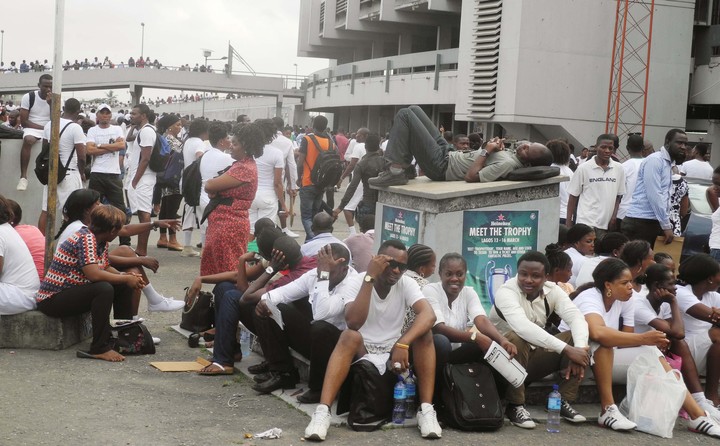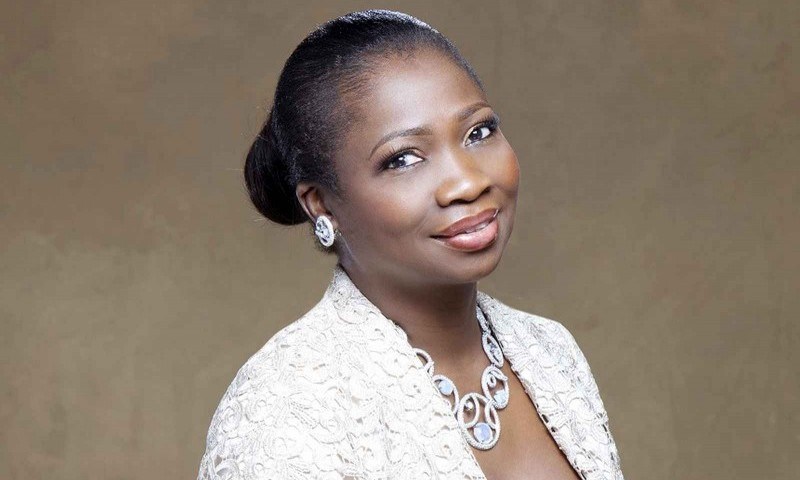
Place Of Nigerian Youths In The Emerging World Order
It was a rare opportunity for me as a student to have attended Law Colloquium in Honour of retired Justice of the Supreme Court of Nigeria, Justice Kayode Eso, at Obafemi Awolowo University, Nigeria on July 25, 2006 where former Central Bank of Nigeria Governor, Prof. Chukwuma Soludo, was invited as the guest speaker.
While delivering his lecture, Prof. Soludo quoted famous Danish Philosopher and Theologian – Søren Kierkegaard– that “Life can only be understood backwards; but it must be lived forwards”.
He made reference to this Philosophy with respect to the socio-economic environment in Nigeria as one beckoning for a social revolution rather than ready for an industrial revolution as once argued by late Pius Okigbo. His thought inspired further discourse on the need of our dear nation to join the first world economy and subsequently place of youth in national integration and development.
Thus, my focus in this paper is to identify place of Nigerian youths in colonial and post-colonial struggles and more importantly to elaborate on social inclusiveness of Nigerian youths in the emerging world order.
Another perspective to Søren Kierkegaard Philosophy essentially mirrors the struggle of our founding fathers during their youthful age towards Nigerian independence.From August 6, 1861 when The Treaty of Cession between the then Oba of Lagos, his chiefs and the British Crown was signed through 1914 when the Northern and Southern Protectorates were amalgamated resulting in the birth of Nigeria until October 1, 1960 when the union jack was historically lowered at the Tafawa Balewa Square (TBS) in Lagos, Nigerian youths have been at the forefront of national development.
Despite the discrepancies in colonial policy in terms of socio-economic projects, social development and establishment of administrative centres recognized by scholars and writers, Herbert Macaulay in his youth belief in the necessity for the people living in the British colony of Nigeria of multiple backgrounds to unite as one in order to be able to resist colonialism. This same philosophy led to the formation of National Council of Nigeria and the Cameroons (NCNC) together with Dr Nnamdi Azikwe in 1944. Thus, Herbert Macaulay became NCNC first president, while Azikwe was its first secretary.
Obviously, the role of Nigerian youths in agitating for independence cannot be underestimated. The likes of Sir Tafawa Balewa, Sir Ahmadu Bello, Chief Obafemi Awolowo together with aforementioned nationalists – Macaulay and Azikwe – including but not limited to Eyo Ita, Samuel Akisanya, Kofo Abayomi, Ernest Ikoli and H.O. Davies all of whom were at the forefront of Nigerian Youth Movement (NYM)founded in Lagos in 1933, fought in their youthful days to deliver the political independence we all enjoy today. We can easily recollect with nostalgia how a young and vibrant Nigeria’s foremost pro-democracy activities, Anthony Enahoro, in 1953 became the first to move the motion for Nigeria’s independence. Despite several political setbacks and defeats in parliament including an attempt by young SL Akintola in 1957, Remi Fani-Kayode revisited Enahoro’s motion and the motion was successfully passed by the parliament in 1958 which led to Nigerian independence on October 1, 1960.
On the other hand, the post-colonial struggles necessitate an inclusive social development for the youth. As noted by the United Nations Department of Economic and Social Affairs(UNDESA), the Focal Point on Youth aims to build an awareness of the global situation of young people, as well as promote their rights and aspirations. Furthermore, the Agenda also works towards greater participation of young people in decision-making as a means of achieving peace and development.
Summarily, the Focal Point on Youth works to: enhance awareness of the global situation of youth and increase recognition of the rights and aspirations of youth; promote national youth policies, national youth coordinating mechanisms and national youth programmes of action as integral parts of social and economic development, in cooperation with both governmental and non-governmental organizations; and strengthen the participation of youth in decision-making processes at all levels in order to increase their impact on national development and international cooperation.
Coincidentally, the theme of the International Youth Day 2018 dwell exclusively on safe spaces for the youth whereby they can come together, engage in activities related to their diverse needs and interests, participate in decision making processes and freely express themselves. While there are many types of spaces, safe spaces ensure the dignity and safety of youth.
Moreover, Goal 11 of the 2030 Agenda for Sustainable Development of United Nations Development Programme (UNDP) specificallyemphasizes the need for the provision of space towards inclusive and sustainable urbanization. Additionally, UNDPNew Urban Agenda (NUA) reiterates the need for public spaces for youth to enable them to interact with family and have constructive inter-generational dialogue as we are now having with Association of Nigerian Students, University of KwaZulu-Natal Independence Day Colloquium.
Furthermore, the United Nation (UN) framework on World Programme of Action for Youth (WPAY) which is the UN framework for youth development, prioritizes the provision of “leisure activities” as essential to the psychological, cognitive and physical development of young people. The framework asserted that as more and more youth grow in a technologically connected world, they aspire to engage deeper in political, civic and social matters, and the availability and accessibility of safe spaces becomes even more crucial to make this a reality.
In February 2010, three key objectives were identified and adopted by the UN Framework for specific actionsessential to implement the objectives, which are:
Firstly, create awareness by increasing commitment and investment in youth. This can be achieved by increasing recognition of youth development as a smart investment by the public and private sectors; advocating for the recognition of young people’s contributions to national and community development and to achieving the Millennium Development Goals; promoting understanding of inequalities amongst youth and how to effectively address the needs of the most disadvantaged; and fostering research and knowledge building on youth to better inform youth policies and programmes.
Secondly, mobilize and engage by increasing youth participation and partnerships. This can be achieved by institutionalizing mechanisms for youth participation in decision-making processes; supporting youth-led organizations and initiatives to enhance their contribution to society; and strengthening networks and partnerships among Governments, youth-led organizations, academia, civil society organizations, the private sector, the media and the UN system, to enhance commitment and support for holistic youth development.
Thirdly, connect and build bridges by increasing intercultural understanding among youth. This objective can be achieved by promoting youth interactions, networks and partnerships across cultures; and empowering and supporting youth as agents of social inclusion and peace.
This UN Framework also situate my submission in this paper in engaging Nigerian youths for national issues and programmes that are crucial in the prospect for nation building and national development. As a matter of utmost priority, Nigerian government should make concerted efforts in putting in place youth development structures as a catalyst for her national growth.
Above all, Nigerian youths are surely among the most talented and creative youths in the world. From Jessica Osita led five-member team of Save-A-Soul that won the 2018 Technovation Challenge in US through Aliyu Jelani, the famous Nigerian Chevrolet Car Designer at General Motors in US to Silas Adekunle who is credited for building the world’s first gaming robot thus becoming the highest paid in the field of Robotic Engineering in 2018and several other Nigerian youths who are among “the thousands and one shining flowers in the jungle unseen” (apology to William Shakespeare) including but not limited to Dr Chukwuka Monyei in South Africa, Nigerian youths are fast learners; they have the ability to work under pressure and bring out desired result for any organization or institution.
Undoubtedly, I will like to conclude with the words of British statesman who twice served as Prime Minister of the United Kingdom, Benjamin Disraeli that:“We live in an age when to be young and to be indifferent can be no longer synonymous. We must prepare for the coming hour. The claims of the future are represented by suffering millions; and the Youth of a Nation are the trustees of Posterity.” God bless Nigeria!
Engr. Dauda Olayinka Ayanda, (MNSE, MIEEE, MHKN) Former Executive Member, Nigerian Society of Engineers, Ibadan Branch.
[Being a keynote address delivered on September 29, 2018 at Independent Day Colloquium of Association of Nigerian Students, University of KwaZulu-Natal (ANSU), Howard College Campus, South Africa.]



